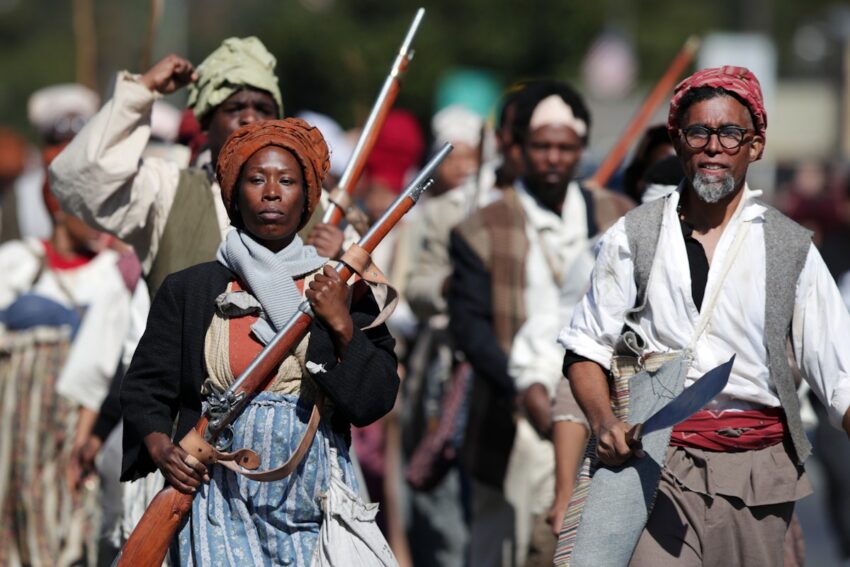What a gun may be to you may not be what a gun is to a Black Southerner. What a gun became as we watched mass shootings by young white men—so often fitting that same profile of loners immersed in right-wing bigotry—had nothing to do with us. For us, a gun was something you kept under your bed or in a closet for when the white men came around with guns for you. Or a tool for you to seek sustenance from the woods to supplement the meager bit the white man had given; the flesh of deer and squirrel could be food on your family’s table to stave off the ever-encroaching hunger.
Being tied to the land—to the cycles of the crops and the seasons, to the types of soil and the temperament of the winds—is likewise part of the experience of being a Black Southerner, relating to other Black Southerners. The rifle in the Black Southern home served a dual purpose: to protect against the ever-present threat of white supremacist terrorism and to hunt game. It served a utilitarian and practical need. It wasn’t there for plots to commit mass violence. My father’s stories of his boyhood in a small Virginia county of a few thousand people were of shooting house mice, going on hunting and fishing trips, and staying guarded in the night for if the white folks got too rowdy and thought terrorizing their Black neighbors could be entertaining. And his experience isn’t a singular one. It’s an upbringing many Black Southerners had and are still having.
And we won’t forget that climate disaster is here and now: While the rest of America looked away, much of Appalachia has lain in ruin in the months after Helene. Communities that don’t have running water or roads or electricity have been in survival mode, organizing labor so that the vulnerable are cared for and resources are distributed. The reason survival leftism is organically operating in Appalachia (though the people who get paid to sit in studio sets and deliver the news forgot) is the reason Black Southerners are keeping their guns by their sides, too: Because when there is no order or rule to protect you, or when the order is against you, you become your own order. Be fooled by none of the myths that say we, as Black Southerners, are dupes. We survived centuries of America’s mightiest brutality because we knew what we were doing and used every scrap of a tool at our disposal. That is how we can continue to survive and how, if they dared listen to us instead of hating us, we could lend ourselves to others who wish to survive.
Harriet Tubman was armed leading the enslaved through the backwoods, guided by the constellations northward to freedom. The Black Southerners living during Reconstruction were armed against the Klan. My mother’s father’s people, free Black people who lived as small poor farmers in eastern North Carolina for centuries, kept guns along with their papers demonstrating they were legally free, because white people could raid them and abduct them into slavery at any time.
Black Southerners weren’t displaying their guns as a visible symbol of defiance, like the iconic portraits of armed Black Panthers from the 1960s. There’s nothing wrong with that at all—to stand in the face of white America and boldly announce you won’t be backing down. But the ways guns were culturally held in the Black South were different, the covert protection kept for when white supremacists reared their heads at you, that you pull out when needed. That is the distinguishing feature of Black Southern gun culture as opposed to mainstream white gun culture: Black Southern gun culture is a response to violent white supremacy and a defense against it, not a colonial offensive against marginalized groups to subjugate them.
Guns are a commonplace tool of necessity in the Black South. Domestic violence exists, as do interpersonal violence and brawls, of course—and it would be foolish not to acknowledge the role guns can play in those. But the idea of setting about to use a gun to inflict terror or plot mass murder is foreign to the Black South.

